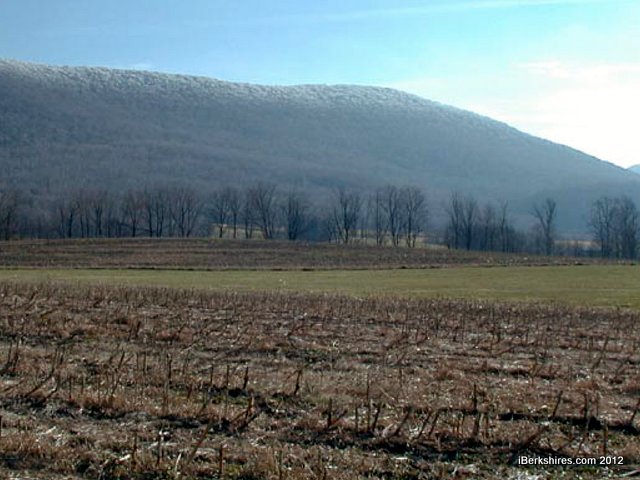
Williamstown Affordable Housing Group Inquire About Conserved Lands
 A portion of the 139-acre Burbank property in Williamstown is seen in this image pulled from a 1998 study by four Williams College students titled 'Management Plans for Conservation Commission Lands.' |
The subject came up as the group discussed whether to start a dialogue with the town's Conservation Commission, a step the housing group ultimately decided to take.
"Either you're going to have to take land out of conservation or use all the money [earmarked for housing] to acquire land and have nothing left to develop it," committee member Bilal Ansari said. "[The latter move] makes no fiscal sense."
His colleague Cheryl Shanks had a sobering response.
"It makes sense if you don't want affordable housing," she said.
Shanks went on to point out that there are people who want to see property values remain high and maintain a sense of exclusivity in the town, and some who see affordable housing projects as a threat to Williamstown's character.
"Let's hope that what happened at the Spruces raised people's consciousness," committee Chairwoman Catherine Yamamoto said, referring to the impact of last year's Tropical Storm Irene in the mobile home park. "We lost 150 homes where our friends and neighbors and family members lived."
Replacing those homes would at least bring Williamstown's affordable housing stock back to its pre-Irene level, but the Affordable Housing Committee has a broader goal: fulfilling the promise of the towns' 2002 Master Plan, which noted "unmet need for affordable starter housing and moderately priced homes."
Yamamoto's group has targeted the former town garage site at 59 Water St. as its most likely site for development, but as she noted last night, it is only 1.3 acres. Even if the site's contaminated soil issues can be addressed and it is developed, it still can not accommodate 150 housing units or more.
So on Wednesday, the Affordable Housing Committee decided to have one of its members, Van Ellett, bring its concerns to the town's Conservation Commission, on which he also serves.
Ellett asked the Affordable Housing Committee for permission to raise the issue at Thursday's meeting of the conservation panel, which, among other things "oversees nine town-owned parcels of land dedicated to conservation and recreation," according to the town's website.
Two of those parcels, the former Burbank and Lowry farms, have been frequently mentioned by the Affordable Housing Committee as potential sites for development, but the committee is yet to make a formal proposal to the "Con Com" to begin the process of taking the land out of conservation.
"Why are we tip-toeing around this issue?" Ansari said. "We want to take parcels from Burbank and Lowry, period. Time is ticking on us now."
Ansari was referring both to the pressing need created by last year's flooding and the prolonged process required to take land out of conservation, a step that requires both approval in Boston and two separate town meeting votes.
Yamamoto agreed that her panel should begin the process of moving some or all of the former farmlands out of conservation to make it available for housing development.
"The more we talk about it, the better," she said.
It was the second meeting in less than a week for the Affordable Housing Committee, which was acting with a sense of urgency to finalize a request for proposals from consultants qualified to assess the town's housing needs.
Yamamoto last week reported to the committee that towns need up-to-date demographic information in hand when they seek federal grant money to advance such projects.
The committee hopes by the end of the week to have a letter with a detailed scope of services for prospective consultants. It hopes to have responses back by early next month, to hire a consultant in December and to have a final report by March 31.
"The purpose of this project is to review current issues and needs with respect to the availability of affordable housing in the Town of Williamstown," the RFP reads. "The study will identify the range of current and projected housing needs facing the town and provide direction for developing strategies to address those needs."
The committee hopes to share the cost of a study with the town's recently constituted Affordable Housing Trust.
This summer, when the panel discussed hiring the more comprehensive services of a development consultant, the committee discussed a maximum budget of $25,000 for that contract.
Tags: affordable housing, land conservation,















